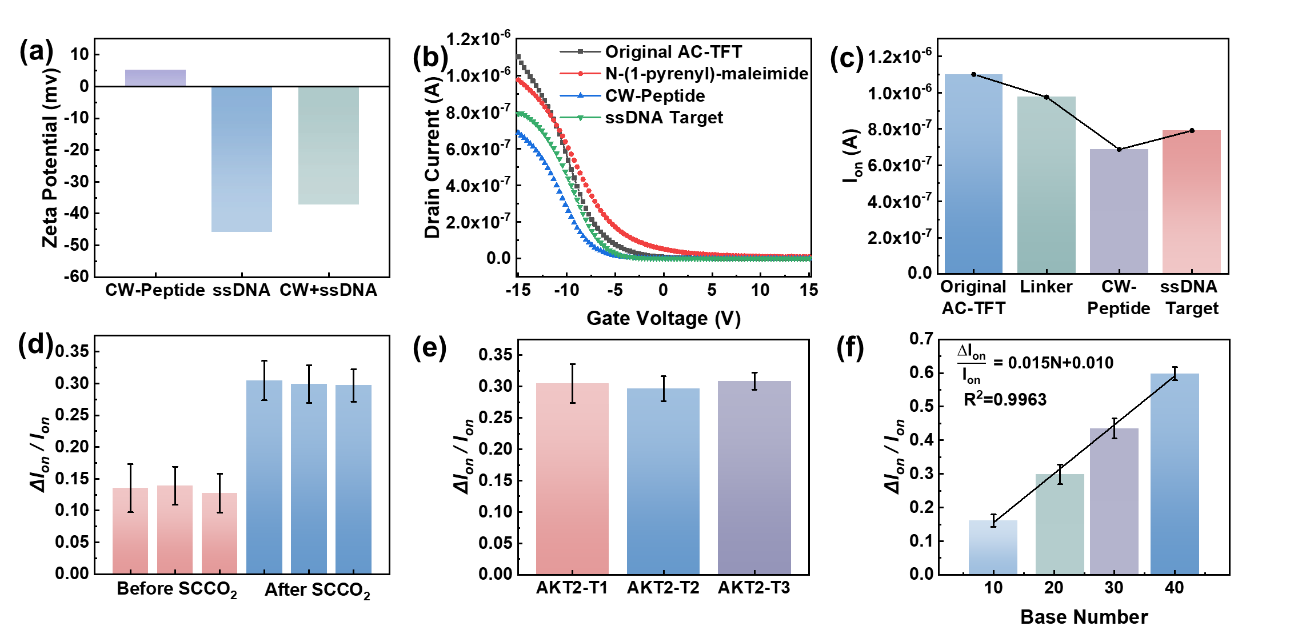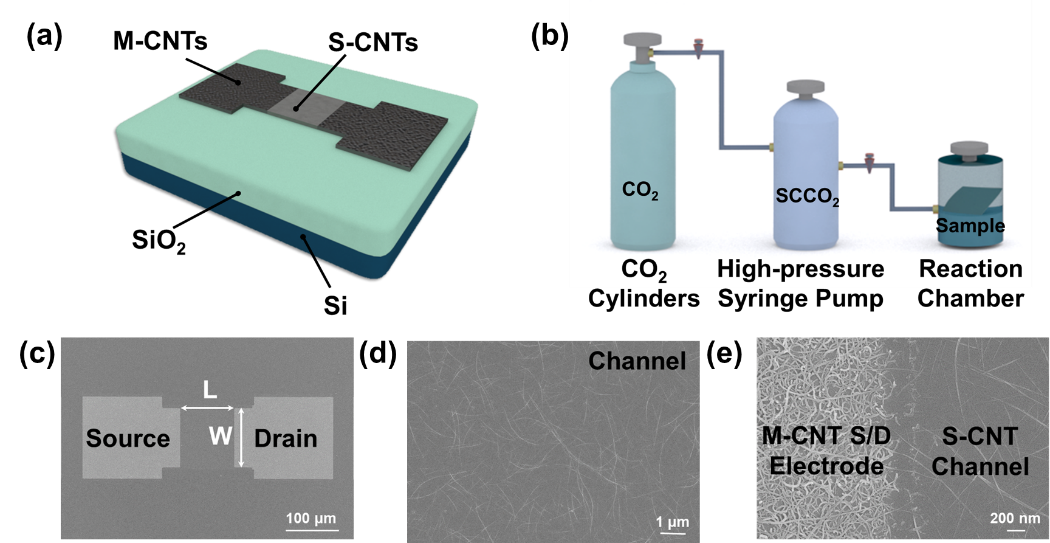Recently, Prof. Zhang Min and Ren Qinqi published their research results entitled ” Low-temperature supercritical activation enables high-performance detection of cell-free DNA by all-carbon-nanotube transistor ” on Carbon (the SCI of zone 1 with IF =9.594) as the corresponding author and the first author respectively.
This work was completed in collaboration with Professor Zhang Min and Professor Li Zigang with Researcher Yin Feng from The School of Chemistry and Chemical Biology and Biotechnology, Peking University. Ren Qinqi, a master student in the School of Information Engineering, and Zhang Yaping, a postdoctoral fellow in the School of Chemical And Biological Engineering, are the co-first authors of this paper.
In this paper, a biosensor based on carbon nanotube thin film transistor is described to construct a high sensitivity detection platform for unlabeled DNA with the help of the undifferentiated adsorption properties of NUCLEIC acid by CW polypeptide probe. After supercritical carbon dioxide treatment, the response of the sensor to triple metastasis negative breast cancer related gene AKT2 can be increased by at least 114%, and the theoretical detection limit can reach 42 fM.
Biosensors based on carbon nanotube (CNT) thin-film transistors (TFTs) have drawn intense interests for their exhibiting great potential in ultrasensitive and label-free DNA detection. However, the inevitable defects in the dielectric and channel of CNT-based TFTs may induce noisy or unreliable output signals. Here, we propose a low-temperature supercritical carbon dioxide (SCCO2) fluid activation method to enhance the performance of transistor-based biosensors. An activation model of SCCO2 treatment is proposed to elaborate that the SCCO2 treatment can repair the dangling bonds of SiO2 dielectric facilely and passivate the hydroxyl groups effectively. Furthermore, a cell-free DNA detection platform is built up based on all-carbon-nanotube TFTs (AC-TFTs) modified by the CW-Peptide probe. By adopting the SCCO2 treatment, the response of AC-TFT biosensors to AKT2 gene related to triple-metastatic negative breast cancer can be enhanced by more than 114% with high uniformity, and a broad detection range of six orders of magnitude is yielded with a theoretical limit of detection of 42 fM. Additionally, the response has a linear correlation with the length of DNA targets. The nondestructive and eco-friendly SCCO2 activation method provides a promising and universal strategy for achieving highly accurate and sensitive transistor-based biosensors in future clinical applications.
The article links:


